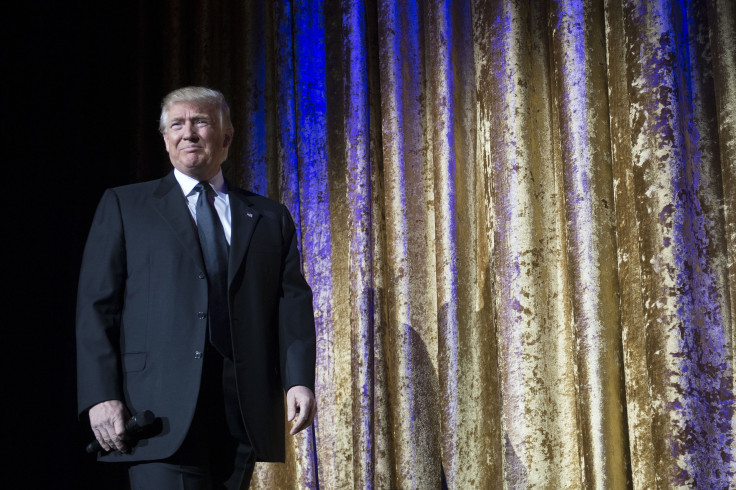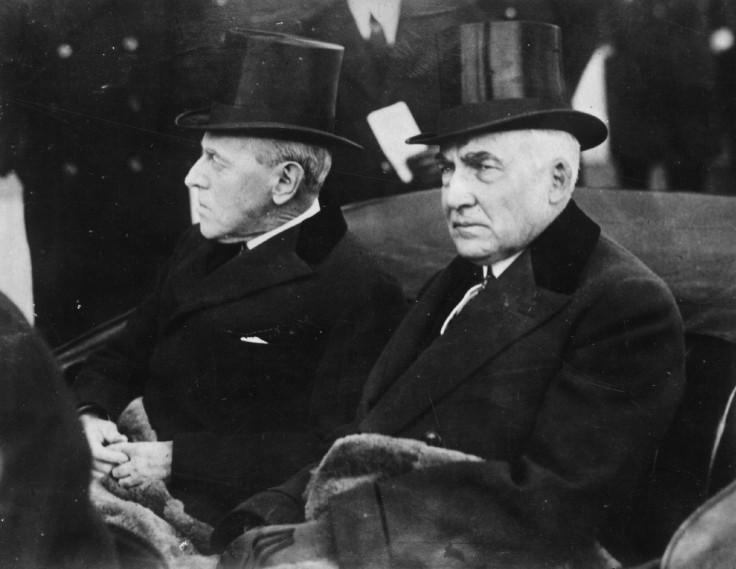Will Trump Be Impeached? List Of Presidents Who Died Or Resigned Before Full Term

William Henry Harrison is the man responsible for the longest inaugural address in United States history. He is also the man with the unfortunate honor of the being the shortest-serving president in history. These two facts may not be unrelated.
And, if he was aware of his presidential history, as he prepares for his inaugural address, Donald Trump may well have breathed a sigh of relief upon checking Friday’s weather for Washington, D.C. There may be rain expected but there will be no repeat of the freezing temperatures in which Harrison gave his near-two-hour-long inaugural address, sans coat or hat, in 1841. Just 31 days later he was dead from pneumonia.
While controversy has surrounded the president-elect, it would be a major surprise were he to take the title of the shortest presidential-reign from Harrison. The allegations that Russia was behind cyber hacking during the election campaign designed to elect Trump have led some to speculate whether he could be impeached. Indeed, betting markets have already produced odds on that happening.
However, history suggests that is unlikely as no president in U.S. history has ever left office due to impeachment. Only five presidents in history have failed to serve a full term after being elected. And, as in the case of Harrison, all of those were as the result of death.
After Harrison, the next shortest-serving president was James A. Garfield, who lasted 200 days in office. His demise began long before that, having been shot by a deranged lawyer at a train station July 2, 1881. After some wince-inducing aftercare in attempts to find the bullet, Garfield developed an infection and died Sept. 19 of that year.
The 12th president, Zachary Taylor, at least made it through the first year, but not much longer. In his 16 months in office, he presided uncomfortably over the growing dispute between the North and South over slavery that would lead to the Civil War 11 years after his death. He died July 9, 1950, after a short illness, although rumors long persisted that he had been assassinated by Southern slaveholders.

Warren G. Harding’s presidency was also cut short by illness. The 29th president took office in March 1921 but died 22 months later after suffering a heart attack while in San Francisco. Despite such a short presidency, he still had time for several scandals, most notably Teapot Dome, which involved the secret leasing of federal oil reserves in Wyoming by the secretary of the interior.
The other president to be prevented from serving a full term after winning election was undoubtedly the most famous of the short-lived presidents. Having taken office in 1961, John F. Kennedy has been fondly remembered by many despite serving less than three years before being assassinated while traveling in a motorcade in Dallas in 1963.
While a number of presidents failed to serve a full term having stepped up to the role from vice-president midway through a term, only one president has ever not completed by an elected term for a reason other than death. That was Richard Nixon, who resigned 19 months into his second term amid the prospect of impeachment following the Watergate scandal.
© Copyright IBTimes 2024. All rights reserved.




















